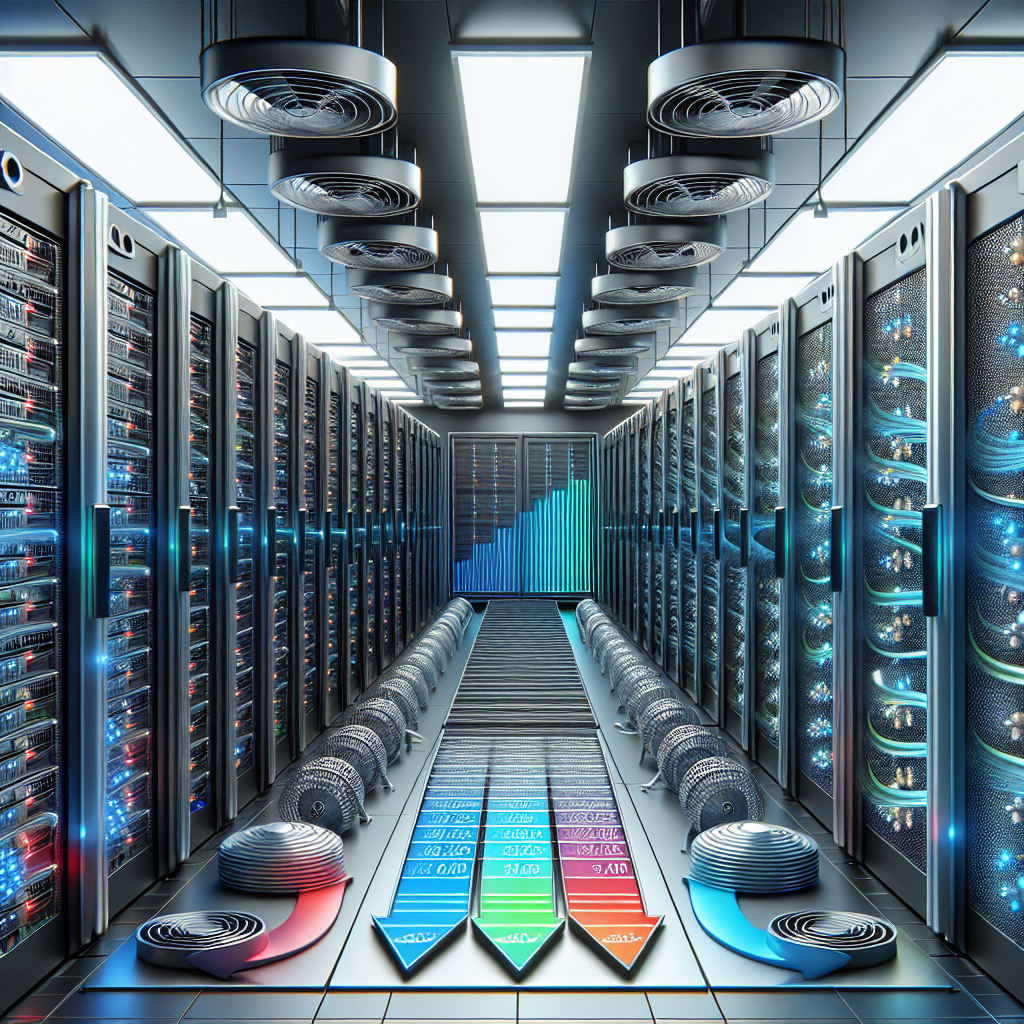Your cart is currently empty!
The Impact of Cooling on Server Performance in Data Centers

The Impact of Cooling on Server Performance in Data Centers
Data centers are the backbone of modern technology, housing thousands of servers that store and process massive amounts of data. However, with great power comes great responsibility – data centers require a significant amount of energy to operate, and cooling is a crucial component in ensuring that servers run efficiently and reliably.
The temperature inside a data center can have a direct impact on server performance. Servers generate a significant amount of heat while in operation, and if not properly cooled, they can quickly overheat and malfunction. This can lead to downtime, data loss, and decreased productivity.
Cooling systems in data centers are designed to regulate the temperature and humidity levels to ensure that servers operate within their optimal range. There are various cooling methods used in data centers, including air conditioning units, liquid cooling systems, and hot aisle/cold aisle containment.
Air conditioning units are the most common method of cooling in data centers, using chilled air to regulate the temperature. However, these systems can be energy-intensive and costly to operate. Liquid cooling systems, on the other hand, use water or other coolants to dissipate heat more efficiently, but they require specialized infrastructure and maintenance.
Hot aisle/cold aisle containment is a more strategic approach to cooling in data centers, organizing servers in alternating rows to create separate hot and cold aisles. This allows for more efficient airflow and temperature control, reducing the overall energy consumption and improving server performance.
The impact of cooling on server performance in data centers cannot be understated. A well-maintained and properly cooled data center can improve server reliability, reduce energy costs, and extend the lifespan of equipment. It is essential for data center operators to invest in efficient cooling systems and regularly monitor and maintain them to ensure optimal performance.
In conclusion, cooling plays a critical role in ensuring that servers in data centers operate at peak performance. By implementing effective cooling strategies and regular maintenance, data center operators can maximize efficiency, minimize downtime, and ultimately improve the overall performance of their servers.

Leave a Reply